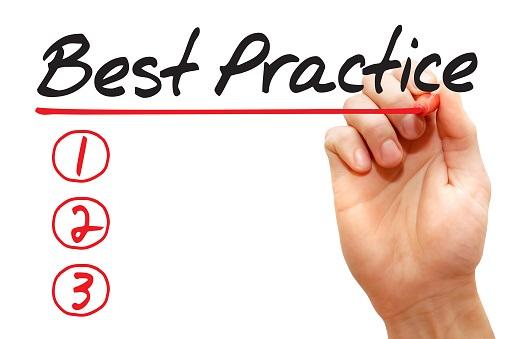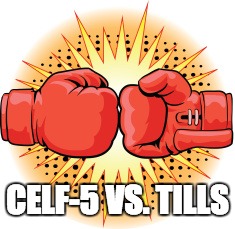
In 2020 I reviewed a product kit (instructional guide and cards) from SPELL-Links™ Learning By Design, Inc. entitled Wordtivities: Word Study Instruction for Spelling, Vocabulary, and Reading. Today, I am reviewing a companion to that product kit: SPELL-Links™ Wordtivities Word Lists. This 180-page guide contains sets of pattern-focused word lists for whole class, small group, and 1:1 word study instruction purposes. Each grade-level word list supports the simultaneous development of pattern-specific phonological (sound), orthographic (letter), and semantic morphological (meaning) skills. The aim of this guide is to systematically address spelling, reading, speaking, and listening all together by developing a neural network for literacy and language.
SPELL-Links™ Wordtivities Word Lists are useful for students 5+ years of age who have or are in the process of developing the following knowledge and skills:
- Letter-name knowledge
- Alphabetic letter writing ability
- Mastery of early phonological awareness (PA) skills by being able to segment words into syllables, understand and create rhyming words, and isolate sounds in words
- Basic concept knowledge of directionality (left/right; top/down)
The book is organized by patterns and grade levels (K-6 grade) and by the instructional focus. For each pattern, word lists are organized to support a specific instructional focus: phonological code, orthographic code, morphological code, storage and retrieval of orthographic representations, and writing application.

The Word Lists feature 128 patterns across grades K through 6. The number of patterns taught at each grade level ranges from 9 (K) to 25 (grades 4 and 5).
Here’s an example of a 4th-grade instructional overview:
Overview of Weekly Instruction . . . . . . . . . . . . . . . . . . . . . . . . . . . . . . . . . . . . . . . . . . . . . . . . . . . . . . . 88
Pattern: Prefixes pre- (before); mid- (middle); post- (after) . . . . . . . . . . . . . . . . . . . . . . . . . . . . . . . . 91
Pattern: Prefixes over- (above, more than); super- (superior, exceeding); under- (below, less than);
sub- (under, subordinate) . . . . . . . . . . . . . . . . . . . . . . . . . . . . . . . . . . . . . . . . . . . . . . . . . . . . . . . . . 92
Pattern: ‘l, r’ Clusters ‘lb, ld, lf, lk, lm, lp, lt, lth, lve, lse’ . . . . . . . . . . . . . . . . . . . . . . . . . . . . . . . . . . 93
Pattern: ‘l, r’ Clusters ‘rd, rf, rm, rn, rp, rt, rsh, rch, rth, rve, rge’ . . . . . . . . . . . . . . . . . . . . . . . . . . . . 94
Pattern: ‘l, r’ Clusters ‘rse, rce’ . . . . . . . . . . . . . . . . . . . . . . . . . . . . . . . . . . . . . . . . . . . . . . . . . . . . . . . 95
Pattern: Homophones Set 1 . . . . . . . . . . . . . . . . . . . . . . . . . . . . . . . . . . . . . . . . . . . . . . . . . . . . . . . . . . 96
Pattern: Suffixes -ion, -ation, -ition (N) . . . . . . . . . . . . . . . . . . . . . . . . . . . . . . . . . . . . . . . . . . . . . . . . 97
Pattern: Suffix -ment (N) . . . . . . . . . . . . . . . . . . . . . . . . . . . . . . . . . . . . . . . . . . . . . . . . . . . . . . . . . . . . 98
Pattern: Suffix -en (V, ADJ) . . . . . . . . . . . . . . . . . . . . . . . . . . . . . . . . . . . . . . . . . . . . . . . . . . . . . . . . . . . 99
Pattern: ‘m, n, ng’ Clusters ‘nd, nt, mp, mph, nth, nch, ngth, nge’ . . . . . . . . . . . . . . . . . . . . . . . . . 100
Pattern: ‘m, n, ng’ Clusters ‘nk, nc’ . . . . . . . . . . . . . . . . . . . . . . . . . . . . . . . . . . . . . . . . . . . . . . . . . . . 101
Pattern: ‘m, n, ng’ clusters ‘nce, nse’ . . . . . . . . . . . . . . . . . . . . . . . . . . . . . . . . . . . . . . . . . . . . . . . . . 102
Pattern: Homophones Set 2 . . . . . . . . . . . . . . . . . . . . . . . . . . . . . . . . . . . . . . . . . . . . . . . . . . . . . . . . 103
Pattern: Syllabic-r Vowel Sound as in bird, father . . . . . . . . . . . . . . . . . . . . . . . . . . . . . . . . . . . . . . . 104
Pattern: Suffix -ward (ADJ, ADV) . . . . . . . . . . . . . . . . . . . . . . . . . . . . . . . . . . . . . . . . . . . . . . . . . . . . . 105
Pattern: Unstressed Vowels . . . . . . . . . . . . . . . . . . . . . . . . . . . . . . . . . . . . . . . . . . . . . . . . . . . . . . . . 106
Pattern: Syllabic-l Vowel Sound as in bottle, pencil . . . . . . . . . . . . . . . . . . . . . . . . . . . . . . . . . . . . . 107
Pattern: Suffix -al (ADJ) . . . . . . . . . . . . . . . . . . . . . . . . . . . . . . . . . . . . . . . . . . . . . . . . . . . . . . . . . . . . 108
Pattern: Suffixes -able, ible (ADJ) …………………………………………….. 109
Pattern: Suffix -ous (ADJ) . . . . . . . . . . . . . . . . . . . . . . . . . . . . . . . . . . . . . . . . . . . . . . . . . . . . . . . . . . . 110
Pattern: Suffixes -ive, -ative, -itive (N, ADJ)………………………………………. 111
Pattern: Suffix -ure (N) . . . . . . . . . . . . . . . . . . . . . . . . . . . . . . . . . . . . . . . . . . . . . . . . . . . . . . . . . . . . . 112
Pattern: Contractions . . . . . . . . . . . . . . . . . . . . . . . . . . . . . . . . . . . . . . . . . . . . . . . . . . . . . . . . . . . . . . 113
Pattern: Prefix tele- (far); micro- (tiny) . . . . . . . . . . . . . . . . . . . . . . . . . . . . . . . . . . . . . . . . . . . . . . . . 114
Pattern: Prefixes mono-, uni-, bi-, tri-, quad-, oct- (number affixes) . . . . . . . . . . . . . . . . . . . . . . . . 115
Pattern Review
The weekly instruction will look as follows:
- Monday-Tuesday: Review of Phonological and Orthographic Codes (these word pattern lists are organized into 3 groups to support differentiated instruction)
- Wednesday–Thursday: Morphology
- Friday: Mental Orthographic Representations and Application to Sentence Writing
The book comes with access to digital Materials Library, which contains access to the following materials:
- List of pattern-loaded stories
- SPELL-Links™ Pattern Inventory & Analysis Tool (PIAT)
The appeal of the product for me is that it offers numerous group-based opportunities for the solidification of evidence-based instructional practices. The book comes with very detailed implementation instructions. A variety of daily activities allow students to further advance their abilities in the areas of prefixes and suffixes, numerous homophones and clusters, unstressed vowels and even contractions. The kit also offers several appendices that review the spelling rules for word roots prefixes and suffixes, as well as detailed recommendations for pattern-loaded reading materials. To me, the appeal of this curriculum is rather multifaceted. It continues to be very difficult to find an evidence-based group instruction curriculum, and Wordtivities Word Lists once again fit the bill for it. Because it focuses on skills integration of spelling, reading, speaking, and listening it allows the students to engage in contextually based opportunities to become better listeners, speakers, readers, spellers and writers.
You can find this kit for purchase on the SPELL-Links™ Learning By Design, Inc. Store HERE.
And now for the fun part. Want to win your own copy of SPELL-Links™ Wordtivities Word Lists? Enter to win here: I want to win SPELL-Links Wordtivities Word Lists! | Learning By Design They’ll send one lucky person a copy of SPELL-Links™ Wordtivities Word Lists. Entries are accepted until 3/1/24 at 5 pm CST. The winner will be notified by email.

 In August 2021, the
In August 2021, the 
 There are many fun yet highly educational therapy activities we can do with our preschool and school-aged clients in the fall. One of my personal favorites is bingo. Boggles World, an online ESL teacher resource actually has a number of ready-made materials, flashcards, and worksheets that can be adapted for speech-language therapy purposes. For example, their
There are many fun yet highly educational therapy activities we can do with our preschool and school-aged clients in the fall. One of my personal favorites is bingo. Boggles World, an online ESL teacher resource actually has a number of ready-made materials, flashcards, and worksheets that can be adapted for speech-language therapy purposes. For example, their  Those of you familiar with my blog, know that a number of my posts take on a form of extended responses to posts and comments on social media which deal with certain questionable speech pathology trends and ongoing issues (e.g., controversial diagnostic labels, questionable recommendations, non-evidence based practices, etc.). So, today, I’d like to talk about sweeping general recommendations as pertaining to literacy interventions.
Those of you familiar with my blog, know that a number of my posts take on a form of extended responses to posts and comments on social media which deal with certain questionable speech pathology trends and ongoing issues (e.g., controversial diagnostic labels, questionable recommendations, non-evidence based practices, etc.). So, today, I’d like to talk about sweeping general recommendations as pertaining to literacy interventions.  Over the years this blog has amassed many posts on a variety of topics pertaining to the assessment and treatment in speech-language pathology. With over 300 posts and over 130 search categories it’s no wonder that some of you have reached out to ask about effective ways of finding relevant information quickly. As such, in addition to the existing categories pertaining to specific topics (e.g., writing, social communication, etc.) I have created two specific categories which were asked about by numerous blog subscribers in recent emails.
Over the years this blog has amassed many posts on a variety of topics pertaining to the assessment and treatment in speech-language pathology. With over 300 posts and over 130 search categories it’s no wonder that some of you have reached out to ask about effective ways of finding relevant information quickly. As such, in addition to the existing categories pertaining to specific topics (e.g., writing, social communication, etc.) I have created two specific categories which were asked about by numerous blog subscribers in recent emails.  On a daily basis I receive emails and messages from concerned parents and professionals, which read along these lines: “My child/student has been diagnosed with: dyslexia, ADHD, APD etc., s/he has been receiving speech, OT, vision, biofeedback, music therapies, etc. but nothing seems to be working.”
On a daily basis I receive emails and messages from concerned parents and professionals, which read along these lines: “My child/student has been diagnosed with: dyslexia, ADHD, APD etc., s/he has been receiving speech, OT, vision, biofeedback, music therapies, etc. but nothing seems to be working.” I frequently see numerous posts on Facebook that ask group members, “What are your activities/goals for a particular age group (e.g., preschool, middle school, high school, etc.) or a particular disorder (e.g., Down Syndrome)? After seeing these posts appear over and over again in a variety of groups, I decided to write my own post on this topic, explaining why asking such broad questions will not result in optimal therapeutic interventions for the clients in question.
I frequently see numerous posts on Facebook that ask group members, “What are your activities/goals for a particular age group (e.g., preschool, middle school, high school, etc.) or a particular disorder (e.g., Down Syndrome)? After seeing these posts appear over and over again in a variety of groups, I decided to write my own post on this topic, explaining why asking such broad questions will not result in optimal therapeutic interventions for the clients in question. 